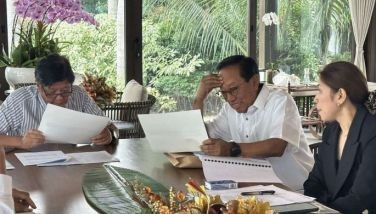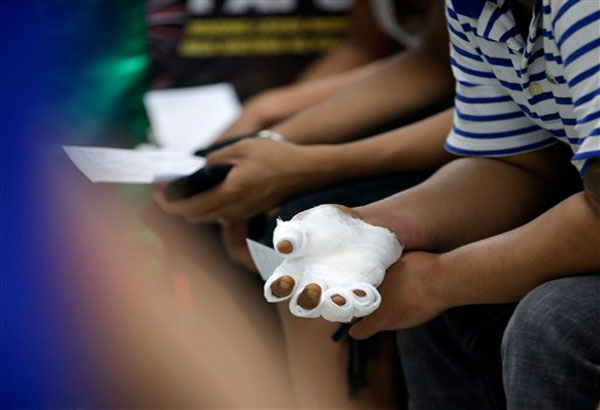Asean caught in dilemma over South China Sea territorial dispute
WASHINGTON – The Association of Southeast Asian Nations (ASEAN) is caught in the middle of a dispute between China and the United States over how territorial disputes in the South China Sea should be resolved.
The issue will be a key topic at the 2nd ASEAN-US leaders’ meeting, according to analysts.
ASEAN and US officials are still discussing the logistics and timing of the summit due to be held next month possibly in Washington to give it more of a cachet, though it could more conveniently be held in New York on the sidelines of the United Nations General Assembly meeting.
The first summit was held in Singapore last November on the sidelines of an Asia-Pacific Economic Cooperation (APEC) leaders’ meeting.
US Secretary of State Hillary Clinton told a regional conference in Hanoi last month that the US had a national interest in seeing territorial disputes in the South China Sea resolved through a “collaborative diplomatic process by all claimants.”
China, which prefers to deal with each claimant individually, criticized Clinton’s remarks as US interference.
Foreign Affairs Secretary Alberto Romulo said Southeast Asian nations do not need US help in solving territorial disputes with China.
Brunei, Malaysia, the Philippines and Vietnam are among ASEAN’s 10-member nations with claims to disputed territories in the South China Sea.
As the jockeying between China and the US over the issue intensified, the Pentagon urged China on Monday to be more transparent in its general military and security buildup.
“The limited transparency in China’s military and security affairs enhances uncertainty and increases the potential for misunderstanding and miscalculation,” the Pentagon said in an annual report to Congress on Chinese military developments.
The report said tensions over disputed claims in the South China Sea resurfaced in 2007 following almost five years of relative stability in the region.
Competition for resources, including oil and gas reserves, and fishing resources most likely fueled the rising tension, although other factors, such as nationalism, also contributed.
China’s primary interests in the South China Sea are related to securing its extensive sovereignty claims in the region and exercising its rights as they relate to exploiting regional natural resources, the report said.
Additionally, a stronger regional military presence would position China for force projection, blockade and surveillance operations to influence the critical sea lanes in the region, through which some 50 percent of global merchant traffic passes.
There has been an active debate among military and civilian theorists in China about what new capabilities the People’s Liberation Army should develop to protect and advance China’s interests beyond the traditional requirements to protect China from attack or coercion, deter Taiwan independence or influence Taiwan to settle the dispute on Beijing’s terms and defend China’s claims to disputed territories in the South China Sea and elsewhere, the report said.
Some senior officers and civilian theorists advocate a major expansion of the PLA’s power projection capabilities, while others urge a more modest increase in its capacity for international peacekeeping, humanitarian assistance, disaster relief and protection of the sea lanes.
The extent to which these considerations shape China’s current defense policy and force planning is not known. However, it is increasingly apparent that these concerns influence China’s thinking about defense planning, the report added.
Dean Cheng, a research fellow in the Asian Studies Center at The Heritage Foundation think tank, said China’s overall efforts to become a true military power was not surprising.
The question in this context is no longer “What will China do?” as clearly China will continue to expand its military as it sees fit.
Instead the question is, “What will the United States do?” Cheng asked.
- Latest
- Trending































